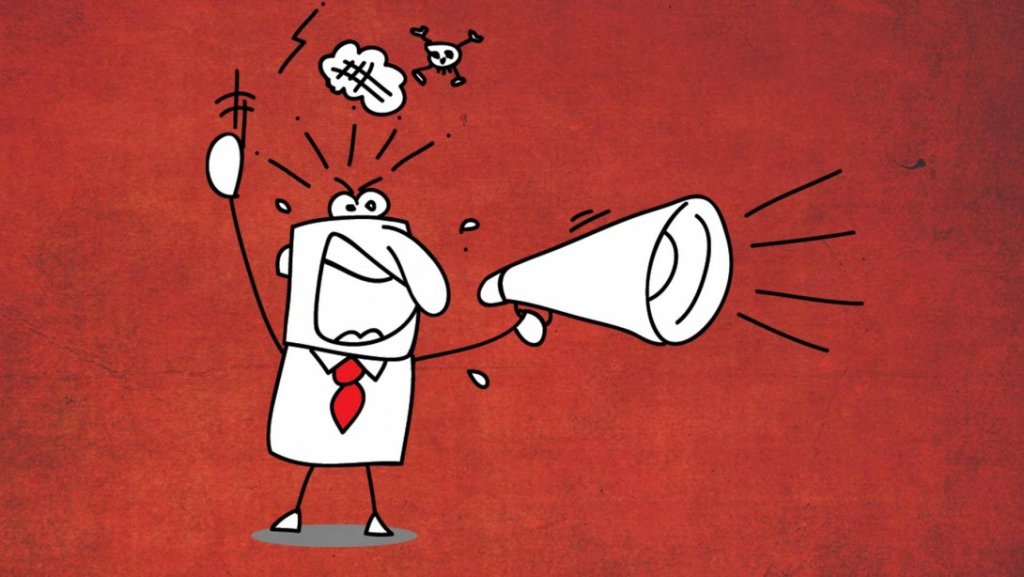Irritable People: Anger as a Form of Communication


Written and verified by the psychologist Valeria Sabater
Irritable people are addicted to constant anger. Hitting the table, slamming doors, shouting, and even throwing tantrums… These people don’t know how to communicate without raising their voices, lose it quickly, and can’t be contradicted. However, behind this difficult behavior often hides a weak person who uses anger as a defense mechanism.
We’ve all lost our cool once or twice. We know what it feels like when rage takes control and almost without knowing it’s happening, we explode in the most inopportune and least tactful way. The important thing about these experiences is that they offer helpful lessons. We learn, whether we want to or not, how important an assertive attitude is when handling complicated situations where our emotional maturity is put to the test.
An irritable person is someone who has learned to relate to the world through anger and uses anger to get what they wants.
On the other hand, there’s a crucial aspect that’s important to consider. Nowadays, we still don’t really understand anger. What we can say, however, is that we should avoid irritable people in our daily lives to safeguard our emotional balance and health.
However, nothing is more essential than understanding. If we take a look at psychology and understand that behind that angry child, that family member with a bad temperament, and that boss who constantly succumbs to frustration, there’s someone who doesn’t know how to use any other kind of language. Someone who fights with themselves and doesn’t know what to do or where all this explosive rage and negativity comes from.

Irritable People: Why do they act like that?
The French have a very good word for this type of passive-aggressive behavior, for people who use anger to communicate. They use the expression “sous-entendu,” which means something like “what’s understood underneath or what’s underneath.” What’s under the wolf’s skin that makes him use this kind of devastating emotional intensity? The answer couldn’t be simpler: there’s another wolf, a wounded wolf.
Let’s take a look at some of those characteristics that could explain this type of dynamics in irritable people.
- Excessive fear. People who react with anger tend to have a lot of fear. These people who got alarmed by the smallest thing as children, who in response to any stimulus reacted with intense fear and alarm. As they matured, this continued aversion to anything out of their control turned into rage. Anger is nothing more than a defense mechanism they use to react to everything and everyone.
- Anger in response to all negative emotions. A person with this personality profile can’t recognize if what they feel is sadness, disappointment, fear, restlessness, surprise, or shame. All these emotions are understood and translated in the same way: anger.
- Anger is a cumulative problem. When there’s an emotion that isn’t channeled into something, or that isn’t understood and dealt with, it accumulates. Often, irritable people carry decades of frustrations stored within them. Due to this, the most insignificant issues act as triggers for the anger contained within.
- Anger and paranoia. This relationship is as problematic as it is remarkable. Irritable people are marked by fear and convulsive emotions they don’t understand. This anger deep within an irritable person creates paranoid behavior. Everything is a threat to them, they distrust everyone, they think that others are there to hurt them or ridicule them. This creates very difficult situations.

How do you learn to manage anger?
Irritable people don’t have a good quality of life. It’s an issue that, from a clinical point of view, can’t and shouldn’t be ignored. Also, as studies show us, these people suffer from more heart problems, strokes, respiratory problems, bad defenses… Anger can also create insurmountable distances from the people we love.
Because of this, these people frequently have what is known as displaced anger. They may be angry with something or someone, but end up projecting all their negative energy onto those who deserve it the least: their children or spouse… It’s important to give them resources and strategies so that they can understand that anger isn’t an acceptable way to communicate. Instead, assertiveness allows you to deal with situations in a better way.
Let’s take a look at some simple strategies that can help us handle this emotion much better:
- We must understand what anger is and what its purpose is. In essence, it’s a response that our brain emits to attack or flee from danger. It’s a purely biological and physiological manifestation.
- The second step is to learn to identify your own emotions and understand what motivates them. Is what I feel sadness? What motivated it? If what I’m experiencing is shame, what caused it?
- Breathing techniques. One way to channel anger and rage that affects our body and mind is to learn to relax, to breathe, and to concentrate on those tense muscles and accelerated heart to help them slow down and relax. Only when we have calmed down can we think better and react more appropriately.
- Substitute anger for assertiveness. Another essential goal for irritable people is to learn to communicate assertively. Instead of using anger as a form of language, they should work to make assertive communication their best tool.

To conclude, let’s consider one last aspect. Sometimes an irritable person not only uses verbal violence, but often, physical violence becomes a recurring problem. Don’t hesitate to intervene in these cases, taking measures to protect yourself if you’re a victim of violence and taking action if you’re the ones that creates these dynamics.
This text is provided for informational purposes only and does not replace consultation with a professional. If in doubt, consult your specialist.








